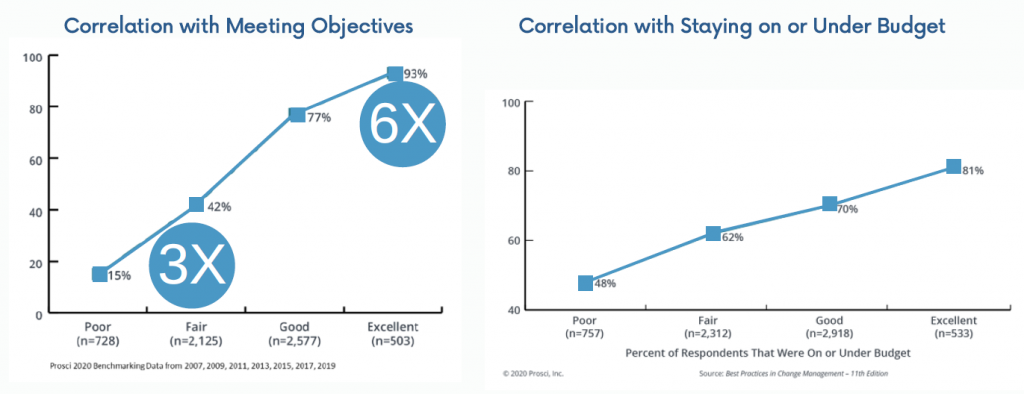Organizational Change Management is a Vital Discipline
Organizational Change Management (OCM) is arguably more important in today’s work environment than ever before. If nothing else, the events of 2020 have taught us change can be unexpected, spontaneous, wide-scaled, and overdue.
COVID-19 caused unprecedented changes to virtually every company’s operating model including how; when; and where they would operate. Adaptability, lean and nimble, were not tag lines, they were survival pillars.
Further, Organizations grappled with the growing urgency to better understand, focus and improve in long overdue areas of diversity, equality, and inclusion.
Technology advancements are providing immense and expansive opportunities to businesses that embrace and leverage the advantages new technologies can have on their organization, their marketplace and customer base. Much of this is being driven by consumer expectations. They want a personal, customized buying experience at a fair price with good quality, regardless of whether the purchase is a product or a service.
Do you have a Structured Change Management Discipline within your Company?
Before you answer, let us look at what Change Management is. Change Management addresses the People side of the proverbial triangle of People, Process and Technology.
Change Management is both a process and a competency. |
As a process, Change Management is the active strategy and planning utilized to move people through change. It is a well-defined methodology. At a high-level it encapsulates three main phases:
- Preparing for change
- Managing change
- Reinforcing change
Change competency is leadership’s ability to effectively guide people through change. This may be as a sponsor endorsing the modification or coaching individuals directly impacted through their own change journey. Regardless of whether the transformation is small in scope such as a technology shift for a few users, or enterprise-wide as the result of a pandemic, change is more successful when the Change Management competencies are built throughout all levels of the organization. In essence, it is cultural to the organization.
Does a Change Management Discipline Matter?
Absolutely! Consider just these three reasons.
Organizations change one person at a time. |
Organizations do not change unless the people change within the organization, one person at a time. For example, a company acquiring another will struggle to integrate the financial, technical and customer aspects of the acquisition if the people do not adapt to their new roles as intended, thereby not changing the organization as intended.
Poorly managed change is expensive. |
Some consequences can be:
- Decline in productivity and morale resulting in employee fatigue or leaving the company.
- Additional resources needed to address lingering issues thereby adding costs.
- Customer expectations may not be met yielding customer loss.
- Trust within the company can diminish in both employees and customers.
- Objectives have a greater chance to fail or be abandoned.
A disciplined approach to change can mitigate these consequences and create other benefits.
Effective Change Management increases success. |
Some additional benefits are:
- Objectives with Excellent Change Management are six times more likely to be met.
- Objectives of staying on time and budget are dramatically improved.
- Post change adoption is more sustainable.
- Organizational shifts due to internal and external factors are easier to incorporate.
Following are two graphical representations of performance correlation when Change Management is introduced at various levels from Poor Change Management to Excellent Change Management.

Change Management Makes a Difference
The benefits of having a structured Change Management discipline can be substantial. When you can methodically plan and implement a change process, managing change becomes more effective and risks are reduced considerably.
Whether it is COVID-19, addressing social injustice issues, leveraging technological advances, or adhering to shifting customer preferences, the businesses that have flourished this past year and are poised to grow have instituted a structured Change Management discipline.
Active Change Management will provide smoother integration of mergers and acquisitions and technology implementations.
The bottom-line, with Change Management, projects and organizational changes are planned and managed in a manner that will improve desired outcomes, reduce surprises, and transition to the new environment easier.
One person at a time. One project at a time. Change Management makes a difference.

